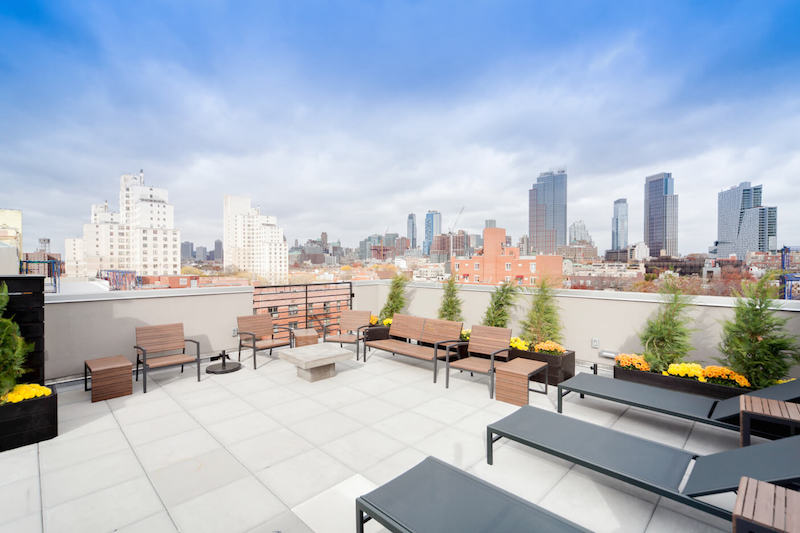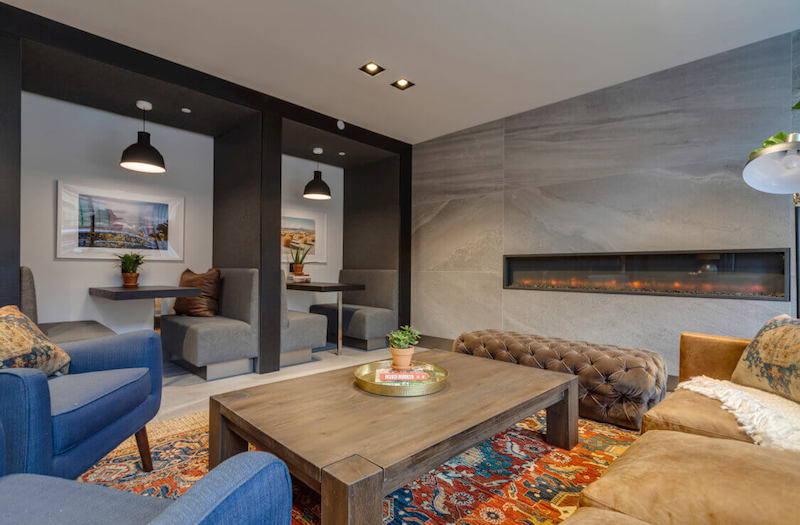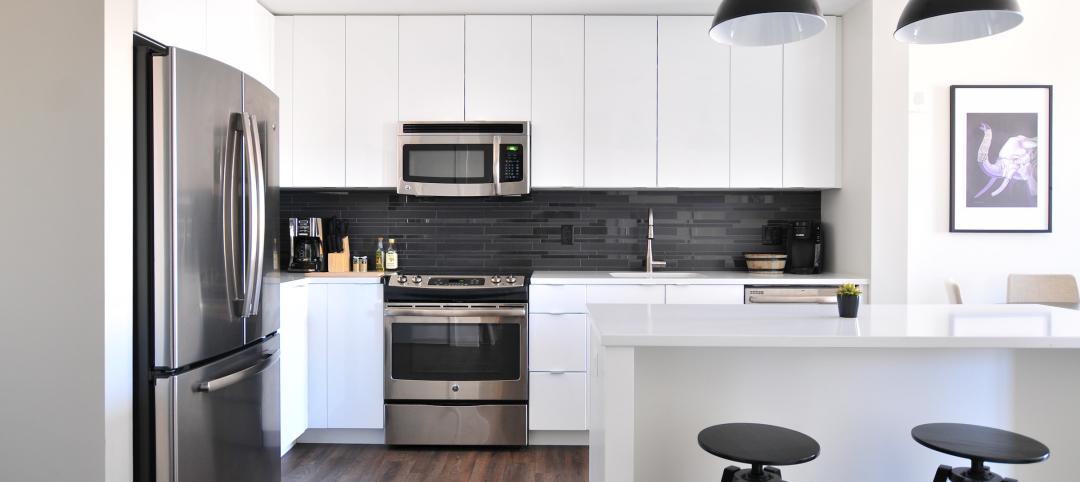The latest coliving phenomenon has spawned its share of startup businesses, all looking to cash in on the demand among younger workers for relatively inexpensive living quarters in urban job centers where affordable housing is scarce-to-nonexistent.
The New York Times recently ran an article titled “The Elusive $1,500 rental,” in which the newspaper noted that the median rent for a Manhattan apartment was $3,475, and that more than half of all New Yorkers spend more than one-third of their incomes on rent.
The solution, for many urban workers, is to find roommates to share the rent burden. And given the market’s supply-and-demand dynamics, it’s not surprising that investors have been diverting their attentions to coliving ventures that answer that call with rentals that require limited lease commitments, and are more like hotels with “all-inclusive” amenities such as furnishings, in-room Wi-Fi, toiletries, linens and towels, and laundry and room-cleaning services.
Coliving companies operate under dwell-like monikers such as The Nook, Node, Roam Co-Living (which caters to global workers), Krash, and Pure House. In May, Bisnow.com reported that Ollie, a co-living company with two locations, had announced the biggest coliving project in North America: a development (with Simon Baron Development and Quadrum Global) in Long Island City, N.Y., that will have 426 beds on 14 floors. It’s scheduled to open next January.
Ollie is currently preleasing 166 coliving beds in an apartment building that will open in Pittsburgh this fall. The company continues to seek institutional financing for growth in markets like Los Angeles and Jersey City, N.J.
Another potential heavy hitter could be WeLive, a coliving venture that WeWork, the fast-growing shared workplace developer, launched in 2016. So far, the company is renting apartments in two buildings, in New York City and Arlington, Va. But expansion plans are on hold so WeLive can “refine” its product, according to James Woods, who leads the WeLive division.
Then there’s New York-based Common, which since launching in the fall of 2015 has raised at least $23.4 million from investors who include some real estate developers. Common currently rents more than 300 bedrooms in nine apartments buildings in New York, San Francisco, and Washington, D.C. (In D.C., a neighborhood association is trying to block Common and developer Oaktree from opening Richardson Place, a 24-unit coliving facility, which the group argues is a commercial property that would be operating in a residential-zoned area).
Earlier this year, Common opened The Baltic in the Boerum Hill section of Brooklyn, N.Y. It was Common’s first hybrid building: 29 apartments with 70 beds for coliving, and 67 studios and one-bedrooms for individual renters.
Sophie Wilkinson, Common’s head of design and construction, notes that Common is different from several of its competitors in that most of its properties have been ground-up construction, including The Baltic, whose developer Adam America owns the building.
Common is also attempting to foment more of a communal living environment. In a recent commentary on Quartz’s website that otherwise disparaged coliving’s responsibility-free ethic, Annaliese Griffin, editor-in-chief of BrookynBased.com, positively singled out Common’s business model that “actively works to maintain long-term tenants and build a strong community within each house.”
Brad Hargreaves, Common's founder, is on record stating his preference for buildings with only around 15 tenants so it’s easier for renters to get to know one another. Common no longer offers one-month leases, and gives tenants discounts on 12-month leases. Each “house” has a “leader” who also gets a discounted lease rate for serving in that role.
Common has been working with developers to design spaces specifically for roommate situations.

A roofdeck lounge is one of the amenities available to coliving renters at The Baltic, one of nine properties operated by Common, a shared-housing provider that is looking to double its bed count this year. Image: Common
Common’s coliving monthly rents in New York start at $1,340 to $2,500 per bedroom, depending on the location; in San Francisco from $2,450 to $2,600; and in Washington D.C., at $1,700. A renter becomes a Common “member” by leasing space. Membership includes free utilities, and access to washers and dryers, household supplies, roof deck spaces, gyms, and weekly room-cleaning. Wilkinson says that, typically, bedrooms are between 100 and 200 sf each, and the apartments are around 900 sf. At The Baltic, there are two to three renters per apartment, although other Common buildings have as many as five coliving renters per apartment.
Wilkinson says designs for coliving apartments focus on communal amenities and spaces, as well as “comfort and privacy on a human scale.” The rooms have lots of natural light. And the designs, she says, take into account “the mechanics of coliving,” in terms of kitchens, storage, and counter spaces.
Common has received more than 15,000 applications for its portfolio of bedrooms, and is looking to do more hybrid projects, Wilkinson says, partly because there are more opportunities to attract developers for them.
Wilkinson was reticent about revealing Common’s expansion plans, noting only a recent announcement about its plan to expand into New Orleans. But earlier this month, the Commercial Observer, based on interviews with Common’s principals, reported that the company intends to more than double to 650 bedrooms by the end of this year, and expand to 2,000 bedrooms by the end of 2018.
Wilkinson did note, however, that she doesn’t think coliving will be confined to urban markets. “I absolutely see us in smaller markets. And what’s been interesting has been that renters are looking for a community aspect.”
Related Stories
Multifamily Housing | Mar 31, 2023
EV charging stations in multifamily housing
Ryan Gram, PE, EV Charging Practice Leader at engineering firm Kimley-Horn, provides expert advice about the "business side" of installing EV charging stations in apartment and mixed-use communities. Gram speaks with BD+C Executive Editor Robert Cassidy.
Multifamily Housing | Mar 24, 2023
Washington state House passes bill banning single-family zoning
The Washington state House of Representatives recently passed a bill that would legalize duplexes or fourplexes in almost every neighborhood of every city in the state.
Multifamily Housing | Mar 24, 2023
Momentum building for green retrofits in New York City co-ops, condos
Many New York City co-op and condo boards had been resistant to the idea of approving green retrofits and energy-efficiency upgrades, but that reluctance might be in retreat.
Legislation | Mar 24, 2023
New York lawmakers set sights on unsafe lithium-ion batteries used in electric bikes and scooters
Lawmakers in New York City and statewide have moved to quell the growing number of fires caused by lithium-ion batteries used in electric bikes and scooters.
Multifamily Housing | Mar 24, 2023
Multifamily developers offering new car-free projects in car-centric cities
Cities in the South and Southwest have eased zoning rules with parking space mandates in recent years to allow developers to build new housing with less parking.
Multifamily Housing | Mar 24, 2023
Coastal multifamily developers, owners expect huge jump in insurance costs
In Texas and Florida, where Hurricane Ian caused $50 billion in damage last year, insurance costs are nearly 50% higher than in 2022.
Multifamily Housing | Mar 24, 2023
Average size of new apartments dropped sharply in 2022
The average size of new apartments in 2022 dropped sharply in 2022, as tracked by RentCafe. Across the U.S., the average new apartment size was 887 sf, down 30 sf from 2021, which was the largest year-over-year decrease.
Geothermal Technology | Mar 22, 2023
Lendlease secures grants for New York’s largest geothermal residential building
Lendlease and joint venture partner Aware Super, one of Australia’s largest superannuation funds, have acquired $4 million in support from the New York State Energy Research and Development Authority to build a geoexchange system at 1 Java Street in Brooklyn. Once completed, the all-electric property will be the largest residential project in New York State to use a geothermal heat exchange system.
Urban Planning | Mar 16, 2023
Three interconnected solutions for 'saving' urban centers
Gensler Co-CEO Andy Cohen explores how the global pandemic affected city life, and gives three solutions for revitalizing these urban centers.
Building Tech | Mar 14, 2023
Reaping the benefits of offsite construction, with ICC's Ryan Colker
Ryan Colker, VP of Innovation at the International Code Council, discusses how municipal regulations and inspections are keeping up with the expansion of off-site manufacturing for commercial construction. Colker speaks with BD+C's John Caulfield.

















